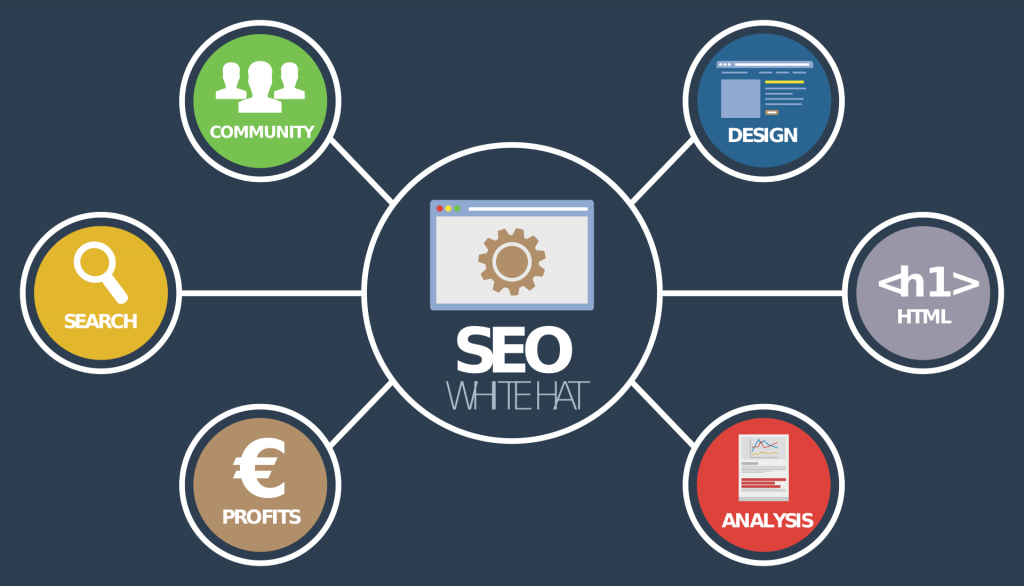In the realm of search engine optimization (SEO), on-page SEO plays a crucial role in optimizing web pages to improve their visibility and rank higher in search engine results. While off-page SEO focuses on external factors like backlinks and social signals, on-page SEO refers to the optimization techniques implemented directly on your website or web pages. In this blog post, we will explore the fundamental concepts and best practices of on-page SEO, empowering you to leverage its power and enhance your website’s performance.
- Understanding On-Page SEO:
On-page SEO encompasses a range of techniques that optimize various elements within your web pages to make them more search engine-friendly. These techniques include optimizing meta tags (title tags and meta descriptions), using relevant keywords, creating high-quality content, optimizing headers (H1, H2, etc.), improving page load speed, optimizing images, ensuring mobile responsiveness, and enhancing user experience (UX). On-page SEO helps search engines understand the content and relevance of your web pages, making it easier for them to rank your website for relevant search queries. - Importance of Keyword Research:
Keyword research is the foundation of effective on-page SEO. It involves identifying the words and phrases that your target audience uses when searching for products, services, or information related to your business. By conducting comprehensive keyword research, you can uncover high-value keywords with a balance between search volume and competition. These keywords should be strategically incorporated into your web page content, meta tags, and headers, providing search engines with relevant signals to understand your content’s topic and intent. - Crafting High-Quality Content:
Content is king in the realm of on-page SEO. Search engines prioritize websites that offer valuable, informative, and engaging content to users. When creating content, it is crucial to focus on relevance, readability, and uniqueness. By aligning your content with user search intent and incorporating relevant keywords naturally, you enhance the chances of ranking higher in search engine results. Additionally, incorporating multimedia elements, such as images, videos, and infographics, can further enhance user engagement and improve the overall quality of your content. - Optimizing Meta Tags and Headers:
Meta tags, including the title tag and meta description, are essential elements of on-page SEO. The title tag should accurately summarize the content of your web page and include relevant keywords. It should be concise, compelling, and unique for each page. The meta description provides a brief summary of the page’s content and serves as a snippet displayed in search engine results. Optimizing meta tags improves click-through rates and helps search engines understand the context of your page.
Headers, denoted as H1, H2, H3, etc., provide a hierarchical structure to your content. Optimizing headers involves using relevant keywords in your headings and organizing your content in a logical manner. Headers not only improve readability and user experience but also signal to search engines the importance and structure of your content.
- Enhancing Technical Elements:
Several technical aspects impact on-page SEO. Page load speed is a crucial factor for both user experience and search engine rankings. Optimizing images by compressing them, utilizing browser caching, minifying CSS and JavaScript, and employing content delivery networks (CDNs) can significantly improve page load speed.
Mobile responsiveness is another critical aspect of on-page SEO, as search engines prioritize mobile-friendly websites. With the increasing number of mobile users, it is vital to ensure that your website is optimized for various screen sizes and offers a seamless experience across devices.
Other technical elements include utilizing clean URLs, implementing structured data markup, optimizing XML sitemaps, and ensuring proper internal linking. These factors contribute to the overall crawlability and indexing of your website, making it easier for search engines to understand and rank your content accurately.
On-page SEO is an indispensable component of an effective digital marketing strategy. By understanding and implementing the best practices of on-page optimization, you can improve your website’s visibility, attract relevant organic traffic, and boost your search engine rankings. From conducting thorough keyword research to crafting high-quality content, optimizing meta tags and headers, and enhancing technical elements, each facet of on-page SEO plays a vital role in improving your website’s performance and user experience. Embrace the power of on-page SEO and witness the transformative impact it can have on your online presence and business success.
